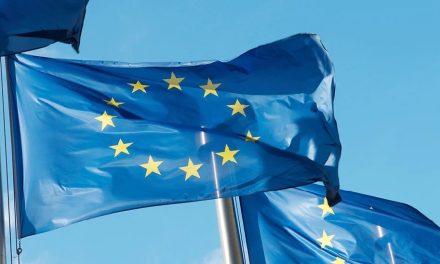
Commission takes the Netherlands to Court of Justice on special powers in KPN and TNT
The European Commission has decided to take the Netherlands to the European Court of Justice in two separate cases with respect to certain provisions of the Articles of Association of KPN and TPG that grant the Dutch State special rights as holder of the special share ("golden share") in the respective capital of the companies. Given the major influence these special rights confer on KPN's and TNT's financial decision-making as well as the management of the two companies, this "golden share" could deter investors from other Member States from investing in the capital of the two firms. The Commission therefore takes the view that these special rights are contrary to the free movement of capital laid down in Article 56 of the EC Treaty and the right of establishment in Article 43.
Koninklijke KPN N.V. (KPN) and TNT Post Groep N.V. (TPG) are the two firms that emerged from the privatisation in 1998 of Koninklijke PTT Nederland N.V., the public telecommunications and postal services operator in the Netherlands. When partly privatising the latter's capital in 1994, the Dutch State decided that special powers were needed to safeguard in particular the provision of a minimum universal service in the telecommunications sector as well as in distribution and logistical services. The articles of association of Koninklijke KPN N.V therefore provided for a so-called "golden share" conferring special rights to approve certain decisions taken by the firm's competent bodies which is now reflected in the articles of association of KPN and TPG.
The Commission takes the view that, without being explicitly discriminatory, these special powers are liable to make it more difficult to acquire shareholdings in the firms concerned and therefore deter investors from other Member States from investing in their capital. They are, therefore, likely to render illusory the free movement of capital and so constitute a restriction on capital movements within the meaning of Article 56 of the Treaty. As in Case C-98/01 (judgment of the Court of 13 May 2003, Commission v United Kingdom / "BAA"), the restrictions at issue do not arise as the result of the normal operation of company law, but as result of measures attributable to the Dutch State.
Also, in so far as these special powers also allow the Dutch State to exercise control over the management policy of the two companies, they affect direct investment and could thus also constitute a restriction on the freedom of establishment guaranteed by Article 43 of the Treaty (Court rulings of 4 June 2002 in Commission v France (C-483/99), Commission v Belgium (C-503/99) and Commission v Portugal (C-367-98).
There is no indication that these restrictions could be justified by the grounds given in Article 45, 46 or 58 of the Treaty or, according to the Court's case-law, by imperative requirements relating to the general interest, provided that they are applied in a non-discriminatory fashion, or that they are such as to guarantee attainment of the objective pursued and do not go beyond what is necessary for that objective to be met, in order to comply with the criterion of proportionality.
KPN N.V.
In the case of KPN N.V., the Commission notes that the special powers attached to the special share relate not only to the provision of a universal service in the telecommunications sector, as defined by Community Directives, but also to other services not forming part of the universal service. In the latter case, it is considered that there are no imperative requirements relating to the public interest that would justify restrictions on the fundamental freedoms of the Treaty. The Commission also notes that the Dutch authorities have not availed themselves of all the possibilities afforded by Community telecommunications Directives to guarantee provision of a minimum universal service. Accordingly it considers that the "golden share" in KPN is a derogation from the provisions of Community law that is neither appropriate or proportionate. Furthermore, the use of the special powers in question is discretionary in nature and thus incompatible with the case law of the Court, which requires that objective, stable and publicly known criteria should be attached to authorisation procedures.
TNT Post Groep N.V.
As regards TNT Post Groep N.V., the Commission notes that the rights conferred by the "golden share" also relate to the supply of postal services that do not form part of the universal service as defined by Directive 97/67/EC (e.g. express courrier services and logistical services). Such services do not, therefore, constitute an imperative requirement relating to the general interest that could justify restrictions on the fundamental principles of the Treaty. Moreover, as in the case of KPN, the Dutch authorities have not availed themselves of all the mechanisms provided for in Directive 97/67/EC for safeguarding the provision of a universal service in the postal sector. Directive 2002/39/EC widened the scope available to Member States for introducing checks and specific procedures to ensure that the reserved services were being provided. Against this background, the use of procedures conferring special powers is disproportionate to the objective pursued. Lastly, the discretionary nature of the use of these special powers is incompatible with the requirements laid down in the Court's case law.
For the latest information on proceedings concerning all Member States, consult the following site:
http://europa.eu.int/comm/secretariat_general/sgb/droit_com/index_en.htm












